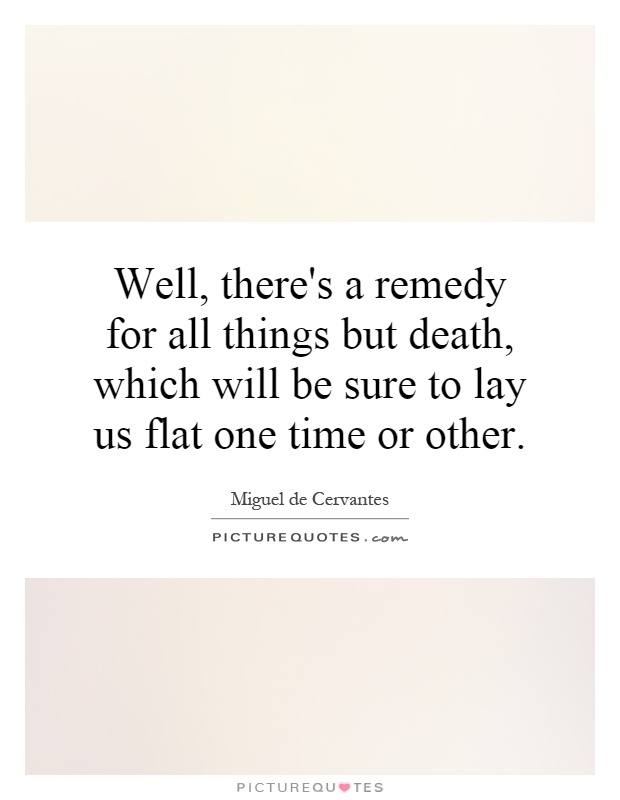Well, there's a remedy for all things but death, which will be sure to lay us flat one time or other

Well, there's a remedy for all things but death, which will be sure to lay us flat one time or other
Miguel de Cervantes, the renowned Spanish writer and author of the classic novel Don Quixote, was no stranger to the concept of mortality. Throughout his life, Cervantes faced numerous challenges and setbacks, including financial struggles, imprisonment, and health issues. Despite these hardships, Cervantes maintained a sense of resilience and optimism, often finding solace in the belief that there is a remedy for all things except death.The quote, "Well, there's a remedy for all things but death, which will be sure to lay us flat one time or other," reflects Cervantes' acceptance of the inevitability of death and the transient nature of life. In Don Quixote, the protagonist embarks on a series of misadventures and encounters various obstacles, yet he remains steadfast in his quest for chivalry and honor. Similarly, Cervantes himself faced numerous challenges in his own life, but he never lost sight of his passion for writing and storytelling.
Cervantes' belief in the power of redemption and renewal is evident throughout his works, as he often explores themes of resilience, forgiveness, and the enduring human spirit. In Don Quixote, the titular character undergoes a transformation from a delusional knight-errant to a more self-aware and introspective individual. This journey of self-discovery and growth mirrors Cervantes' own struggles and triumphs, as he navigated the complexities of life and literature.
Despite the hardships and adversities that Cervantes faced, he remained committed to his craft and continued to produce timeless works of literature that have inspired generations of readers. His belief in the resilience of the human spirit and the power of storytelling is a testament to his enduring legacy as one of the greatest writers in Spanish literature.












 Friendship Quotes
Friendship Quotes Love Quotes
Love Quotes Life Quotes
Life Quotes Funny Quotes
Funny Quotes Motivational Quotes
Motivational Quotes Inspirational Quotes
Inspirational Quotes